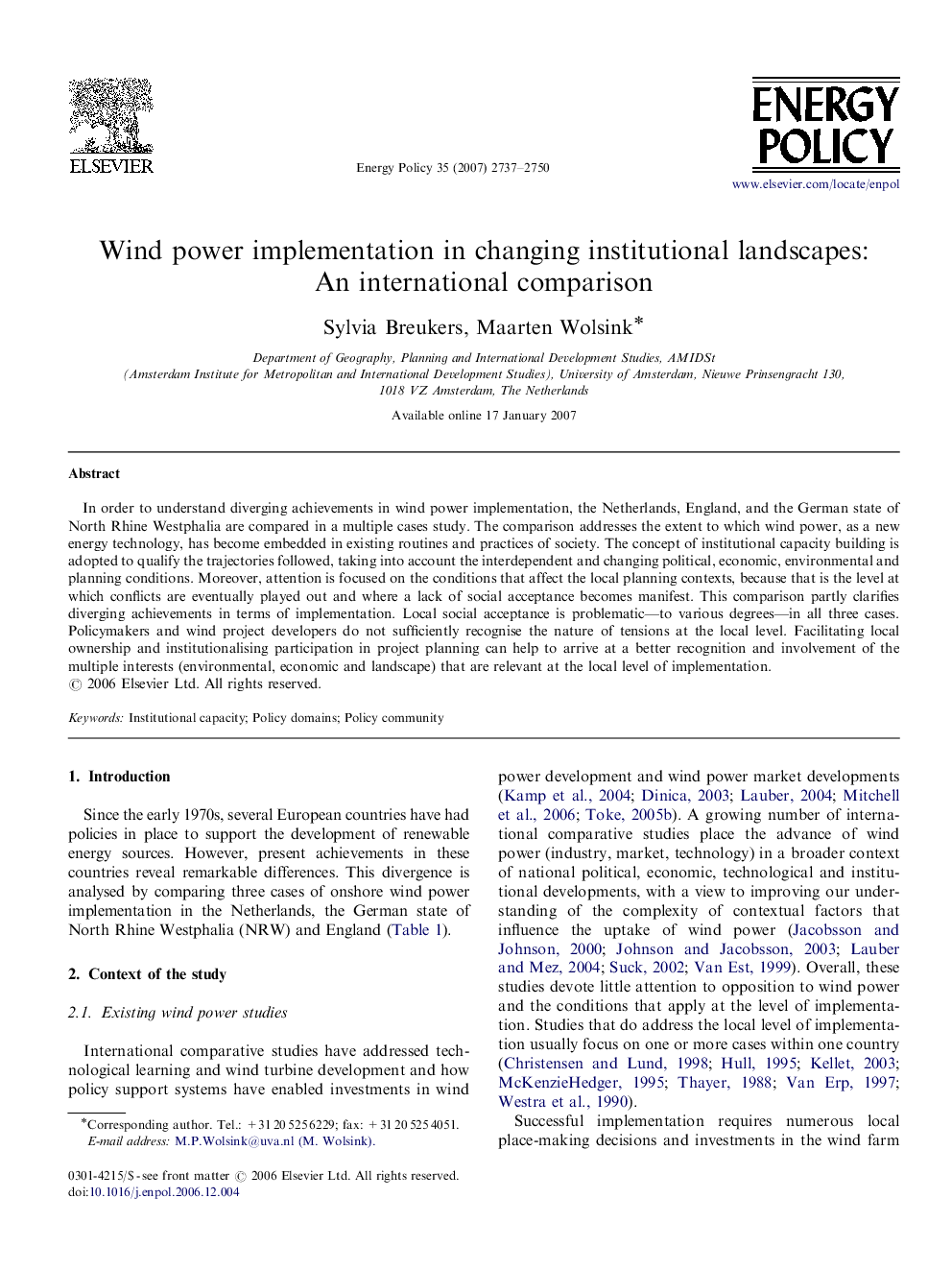| Article ID | Journal | Published Year | Pages | File Type |
|---|---|---|---|---|
| 994325 | Energy Policy | 2007 | 14 Pages |
In order to understand diverging achievements in wind power implementation, the Netherlands, England, and the German state of North Rhine Westphalia are compared in a multiple cases study. The comparison addresses the extent to which wind power, as a new energy technology, has become embedded in existing routines and practices of society. The concept of institutional capacity building is adopted to qualify the trajectories followed, taking into account the interdependent and changing political, economic, environmental and planning conditions. Moreover, attention is focused on the conditions that affect the local planning contexts, because that is the level at which conflicts are eventually played out and where a lack of social acceptance becomes manifest. This comparison partly clarifies diverging achievements in terms of implementation. Local social acceptance is problematic—to various degrees—in all three cases. Policymakers and wind project developers do not sufficiently recognise the nature of tensions at the local level. Facilitating local ownership and institutionalising participation in project planning can help to arrive at a better recognition and involvement of the multiple interests (environmental, economic and landscape) that are relevant at the local level of implementation.
